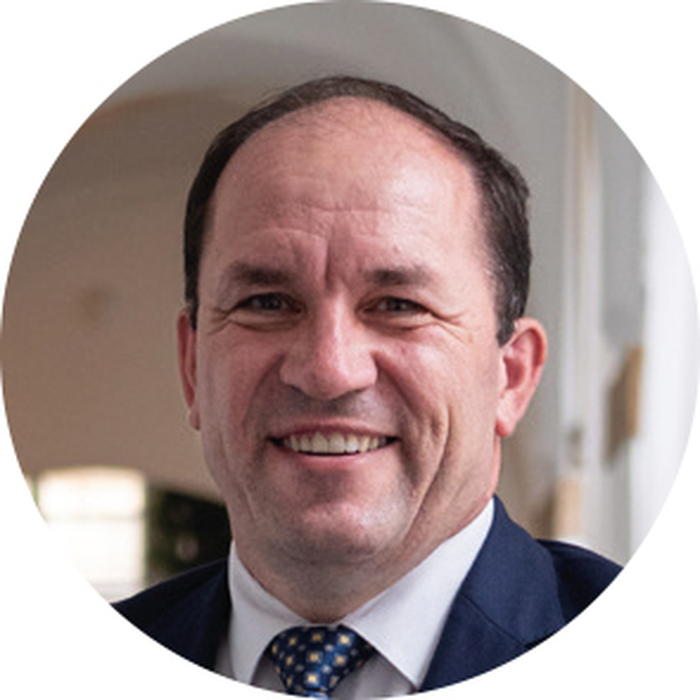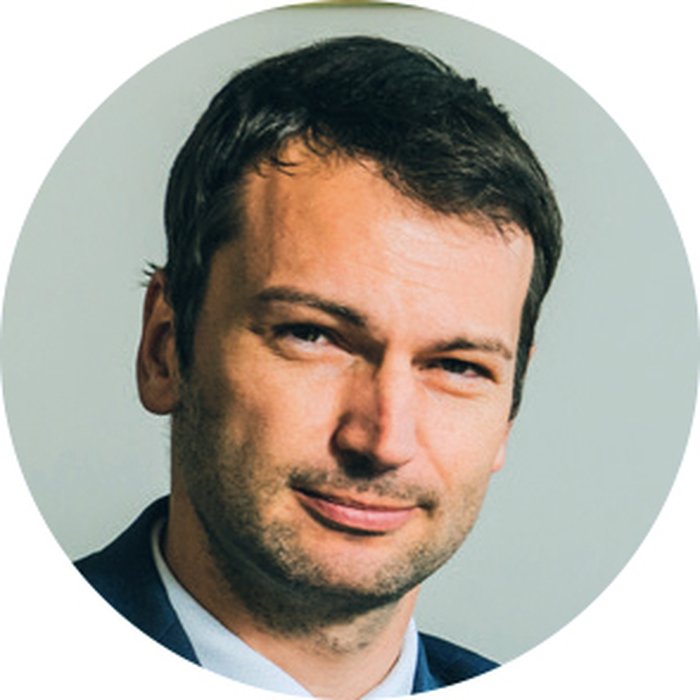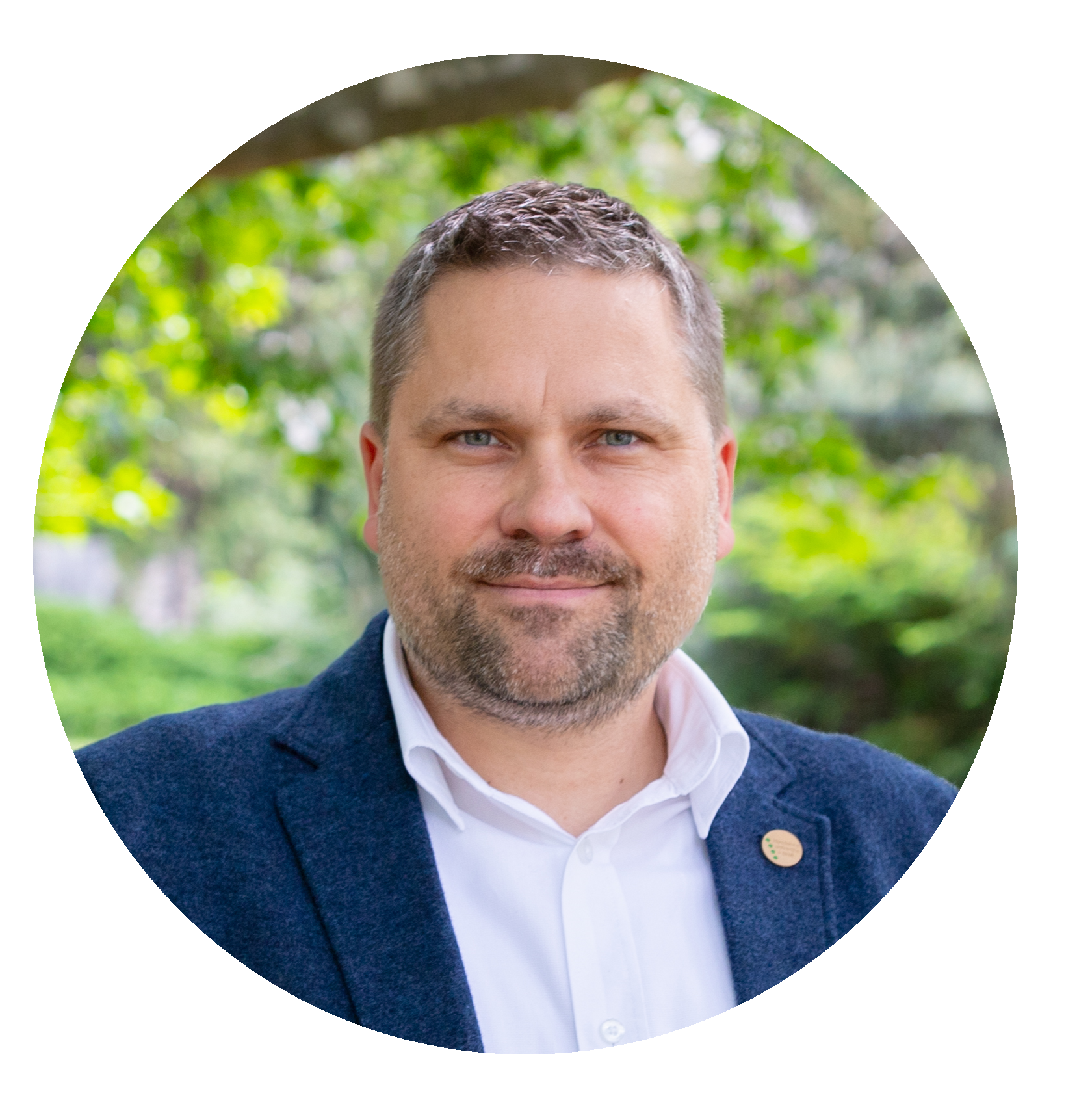Opening ceremony
 Janusz Wojciechowski
Janusz Wojciechowski
European Commissioner for Agriculture
Throughout his tenure as European Commissioner for Agriculture, Janusz Wojciechowski has demonstrated unwavering dedication to shaping a sustainable future for European agriculture. With a distinguished career that spans politics, law, and public service, Commissioner Wojciechowski recognises the potential of innovation and technological advancements to enhance productivity, sustainability, and resilience in agriculture. Under his leadership, the European Commission's Directorate General for Agriculture and Rural Development worked to address various challenges related to climate change, economic volatility or biodiversity loss - issues that will also remain high on the list of the next College of EU Commissioners. EURAF also welcomes the fact that agroforestry was clearly recognised as part of agricultural land (Article 4(3) of the Strategic Plan Regulation) and all Member States have now provided their own definitions of agroforestry. We look forward to hearing more via his video intervention on how agroforestry can maximise its contribution to EU's agro-environmental challenges!
 Ion Codescu
Ion Codescu
European Commission
Ion Codescu is the head of the land use & management unit in DG ENV of the European Commission. The unit coordinates the efforts to make the EU agriculture more sustainable and resilient, to protect forests and soils, as well as waters from excess nutrients.
 Judit Csikvári
Judit Csikvári
Judit Csikvári is a passionate Cultural Anthropologist and dedicated sustainable land-use expert. She worked in the social and market research sectors, and she is also an organic farmer and owner of a diverse agroforestry system on a traditional landscape. Since 2022, Judit has led the Board of EURAF (European Agroforestry Federation). She believes that rethinking and reshaping agriculture and land use practices is crucial for a healthy ecosystem and for a healthy society; and sees scientific research as a tool to reach that goal.
 Marek Výborný
Marek Výborný
Minister of the Agriculture, Czech Republic
Minister of the Environment, Czech Republic
Petr Hladik has been working on environmental issues for over ten years. He was responsible for environmental issues as First Deputy Mayor of Brno. In Brno, he managed to introduce subsidies for the creation of green roofs or rainwater harvesting, both for citizens and companies. During his tenure, he also managed to adopt and implement an action plan for a carbon neutral Brno. As a result, the city started taking steps towards energy independence like installation of hundreds of roofs with photovoltaic panels, the construction of a state-of-the-art automated sorting line, the construction of a third boiler for the energy recovery of waste and the introduction of systematic collection of bio-waste and a plan to build a biogas plant. Thanks to these and other projects promoting green spaces in the city, Brno has been awarded the E.ON Energy Globe or the Smart City title. He prepared Policy Statement of the Government in this area.
 Markéta Vaňková
Markéta Vaňková
Mayor of the city of Brno, Czech Republic
The host city of Brno is represented by its mayor Markéta Vaňková. Brno contributes to dealing with climate change and improving biodiversity in its territory through innovative projects. In 2019, it joined the Covenant of Mayors on Climate and Energy and approved the Brno Sustainable Energy and Climate Action Plan (SECAP). As a significant share of emissions comes from the tertiary sector, the city decided to invite responsible Brno companies and institutions to cooperate and has already concluded a memorandum with almost 90 entities that have committed to an environmentally friendly approach in their activities. The city offers several subsidy programmes to support green projects, environmental awareness or sustainable transport. The activities mentioned above are covered by the #PrepareBrno campaign, which seeks to ensure that everyone, from the public administration to the commercial sector to the individual, really prepares for climate change.
 Jan Doležal
Jan Doležal
President of the Czech Chamber of Agriculture
Jan Doležal was born on May 6, 1986 and grew up on the family farm in the village of Březinka in the Chrudim region, owned by his parents. He studied International Relations and European Studies at Masaryk University in Brno. He then moved to Prague, where he obtained an engineering degree in rural development and agriculture from the Czech University of Agriculture. After school, he joined the Agrarian Chamber of the Czech Republic, where he worked his way up from the position of specialist officer to the post of the Executive Secretary, representing the organisation mainly at meetings in Brussels. He was first elected to the leadership of the organisation on 16 June 2020, when he succeeded Zdeněk Jandejsek as president. He defended his position on 25 May 2023 at the 32nd Congress of the Agrarian Chamber of the Czech Republic in Olomouc and will lead this largest agricultural organisation, whose members produce 80 % of domestic agricultural commodities, for the next three years. He won 94.5 percent of the vote and at 37 years old is the youngest president to date.

Jaroslav Šebek
Chairperson of the Asociation of private farming
Jaroslav Šebek (1974) studied at the Faculty of Agronomy of the Czech University of Life Sciences Prague. Later he graduated from the Faculty of Law at the Pan-European University in Bratislava. He was the secretary of ASZ for almost 17 years and cooperated on the foundation of the Association in the Litoměřice region. Since 2019, he has been the chairman of the Association of Private Farming of the CR. He has a family farm in northern Bohemia, farms conventionally on 40 hectares, raises horses and poultry, offers agro-tourism opportunities and processes the produce from his farm.
 Dalibor Šafařík
Dalibor Šafařík
CEO of Lesy České republiky
Dalibor Šafařík, an experienced economist and forestry manager, is the CEO of Lesy České republiky and has academic experience at the Faculty of Forestry and Wood Technology at Mendel University in Brno. He believes that stability lies in diversity and applies this vision in managing nearly half of the country's forests, including small watercourses and reservoirs. He focuses on species diversity, natural regeneration of stands, soil protection, water retention, and the restoration of windbreaks. Under his leadership, the company has stabilized both personnel-wise and economically and successfully managed the bark beetle calamity. Now, he emphasizes the importance of adapting forests to climate change to ensure their future stability and resistance to pests, while maintaining all essential forest functions: productive, environmental, and social.
 Martin Klimánek
Martin Klimánek
Vice-rector for Strategy and Sustainability, Mendel University in Brno
Among other things, Martin Klimánek represents the university in coordination of the strategic plan, sustainable development goals and the concept of development of university enterprises – University Forest Enterprise Masaryk Forest in Křtiny and University Agriculture Enterprise in Žabčice. Academics with our enterprises collaborate on many aspects of sustainable management such as agroforestry systems. There were established long-term research areas monitoring production and ecophysiology of agricultural crops and trees depending on ecological factors, as well as research on the influence of agroforestry systems at the landscape level at university enterprises. Together, we educate university students in this area, implement further follow-up projects with partners in the South Moravian region, and organize conferences, lectures and practical workshops on the issue of agroforestry.
Closing ceremony
 Emmanuel Petel
Emmanuel Petel
European Commission
Emmanuel PETEL is a policy officer at the Directorate-General for Agriculture and Rural Development (DG AGRI) at the European Commission. Currently, he is working on the integration of environmental concerns into the Common Agricultural Policy (CAP), in particular in relation to soil health and carbon sequestration and on the promotion nature-based practices such as agroforestry, agroecology, regenerative agriculture …
During last programing period (2014 2022), he led a team to manage a "greening" payment: 30% of the direct payments granted to the farmers who respected some basic practices: crop diversification, maintenance of permanent pasture, setting up an ecological focus area on the arable land by promoting landscape features.
As regards the CAP post 2023, Emmanuel PETEL has been involved in the implementation of a new greening architecture (enhancing certain requirements and providing a new funding opportunity such as eco-scheme). Therefore, he has contributed to assess the strategic CAP plan for some Member States, in order to achieve better ambition in relation biodiversity and protection of soil.
Emmanuel PETEL in close cooperation with the Directorate-General for Environment (DG ENV) is taking part in the development for a new legal framework for soil protection especially on the soil monitoring law proposal.
 Jiří Lehejček
Jiří Lehejček
Deputy Member of the Government
Jiří Lehejček graduated in Physical Geography and Geoecology from the Faculty of Science at Charles University and in Forestry from the Faculty of Forestry and Wood Sciences at the Czech University of Life Sciences, where he also earned his Ph.D. He studied at the University of Iceland and Vancouver Island University. He completed doctoral internships at ETH Zurich and the University of Greifswald. He served as Vice-Chair of IFOAM EU (2018-2023), Chair of ČTPEZ (2019-2021), and advisor to the Chair of the Environmental Committee of the Chamber of Deputies of the Czech Parliament (2019-2021). He works at the Faculty of Environment at J. E. Purkyně University and the Faculty of Logistics and Crisis Management at Tomas Bata University, focusing on dendrochronology and Arctic ecosystem adaptation. He led three polar expeditions and managed research projects (H2020, Life+, TAČR, NAZV). He teaches Nature and Landscape Protection and Physical Geography. He is a member of the Czech Pirate Party. He is married, has three children, and speaks fluent English and some German. His interests include sports (cross-country skiing, hiking, kayaking), literature, and theater.
 Jan Mareš
Jan Mareš
rector of the Mendel University in Brno
Jan Mareš is the rector of Mendel University in Brno and has been a professor in the field of fisheries since 2014. His scientific interests focus on fish farming technologies in various production systems, fish nutrition and feeding, fish meat quality, fish hematology, and the non-production functions of ponds. His research addresses sustainable management, examining the impact of fish farming conditions and nutrition on fish meat quality. He also devotes himself to the development and optimization of recirculating fish farms and environmentally friendly and efficient fisheries. As a university representative, he advocates for changes in approaches and thinking that he perceives as crucial for sustainable life on our planet.
 Petr Hladík
Petr Hladík